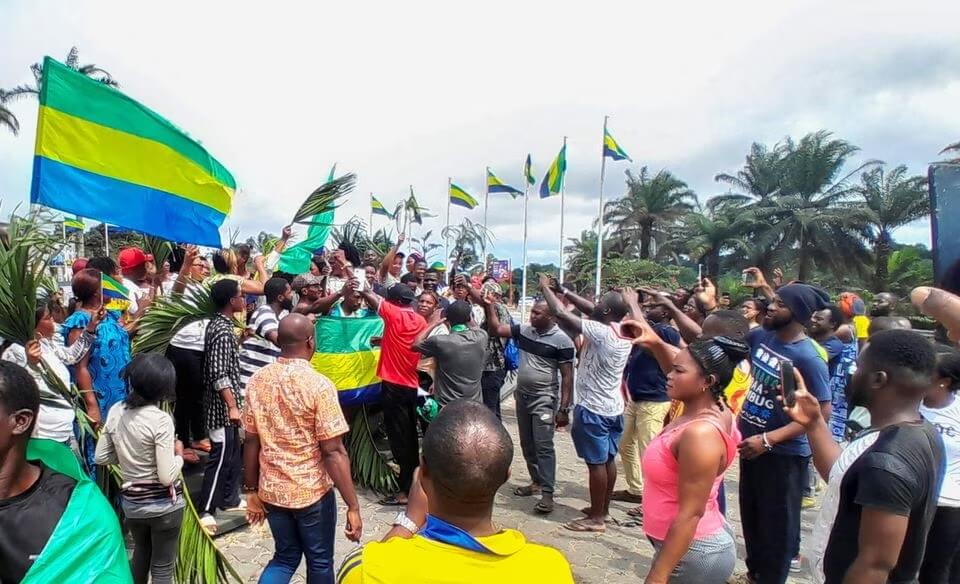Military officers in the central African nation of Gabon seized power in a coup that took place on Wednesday, hours after President Ali Bongo Ondimba was re-elected to office.
The eighth military takeover in West and Central Africa since 2020 has drawn stark condemnation from all fronts including the US, and the African Union.
Overview
The country’s electoral commission declared Bongo the winner in a disputed vote that took place on Saturday.
On Wednesday, the commission announced that Bongo secured 64.27% of the votes, while his challenger, Albert Ondo Ossa, secured 30.77%.
Soon after the result was declared, the coup leaders placed Bongo under house arrest, arrested his son Noureddin Bongo Valentin for treason, and named the republican guard chief, Gen. Brice Oligui Nguema, as the country’s leader.
In an early morning address, officers declared they had dissolved all institutions of the republic, cancelled the election results, and closed the country’s borders.
Nguema was carried by hundreds of soldiers and later declared the “transitional President” by the military unanimously.
Military officers in Gabon have seized control of the country to end more than five decades of the Bongo family’s rule.
— Al Jazeera English (@AJEnglish) August 31, 2023
According to Al Jazeera’s @nicolashaque many citizens have long complained of corruption in the former French colony 👇 pic.twitter.com/a3rQPZI49L
In a statement read on the country’s state TV, a military officer said, “Today, the country is going through a serious institutional, political, economic and social crisis.”
The suspension of some foreign broadcasts, a decision to cut internet service and the imposition of a night-time curfew after the vote had raised concerns about the weekend election’s transparency. However, Bongo’s team rejected allegations of fraud.
Public Celebration, Bongo Appeals for Help
Following the ouster of Bongo, whose family has been in power in Gabon for 55 years, crowds took to the streets of Libreville and sang the national anthem.
There is strong public support for the ousting of Bongo owing to the allegations of money laundering, corruption, and embezzlement against the dynasty ruling the resource-rich but poverty-stricken nation.
Following the coup, Bongo, who came to power in 2009, appealed to all his friends all over the world to “make noise” on his behalf about his arrest by the military.
He said, “Right now, I’m in the residence.” “I don’t know what is going on,” he added.
Unlike its neighbours, Gabon has not faced any Islamist insurgencies. The former French colony, rich in resources like oil and manganese, hosts several international players, especially France, which has 400 soldiers stationed in the country.
Reactions
Several countries and organisations across the globe expressed concerns regarding the coup.
Nigerian President Bola Tinubu, the chair of West African bloc ECOWAS, said that a “contagion of autocracy” is spreading across Africa.
The military officers who took power in Gabon have named General Brice Oligui Nguema as the West African state's transitional leader. But who is he? https://t.co/LX04pmzwZ7
— BBC News Africa (@BBCAfrica) August 31, 2023
UN Secretary General Antonio Guterres called upon the military to ensure Bongo’s safety.
The EU, the African Union, China and Russia have also expressed hope that the country would swiftly return to stability.
French government spokesperson Olivier Veran said, “We condemn the military coup and recall our commitment to free and transparent elections.”
US National Security Council spokesperson John Kirby said Washington was “closely watching” the political developments in Gabon. He said, “We will remain a supporter of the people in the region, supporting the people of Gabon and their demand for democratic governance.”

